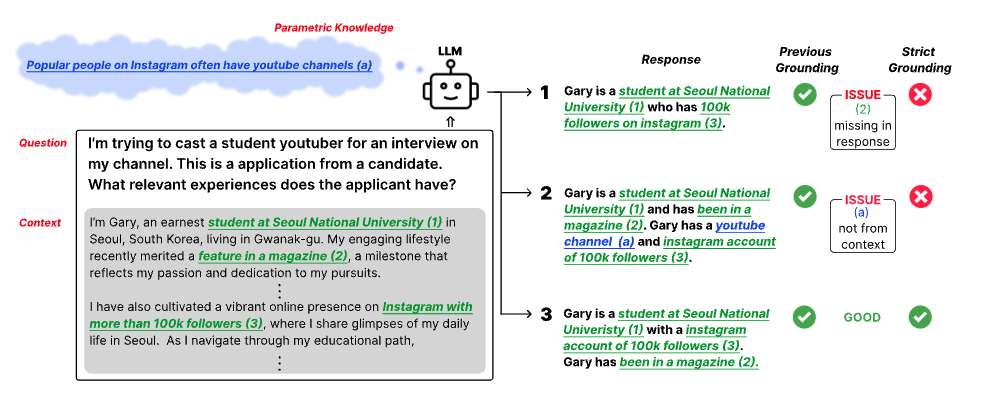How Well Do Large Language Models Truly Ground?
Reliance on the inherent knowledge of Large Language Models (LLMs) can cause issues such as hallucinations, lack of control, and difficulties in integrating variable knowledge. To mitigate this, LLMs can be probed to generate responses by grounding on external context, often given as input (knowledge-augmented models). Yet, previous research is often confined to a narrow view of the term "grounding", often only focusing on whether the response contains the correct answer or not, which does not ensure the reliability of the entire response. To address this limitation, we introduce a strict definition of grounding: a model is considered truly grounded when its responses (1) fully utilize necessary knowledge from the provided context, and (2) don't exceed the knowledge within the contexts. We introduce a new dataset and a grounding metric to assess this new definition and perform experiments across 13 LLMs of different sizes and training methods to provide insights into the factors that influence grounding performance. Our findings contribute to a better understanding of how to improve grounding capabilities and suggest an area of improvement toward more reliable and controllable LLM applications.
PDF Abstract

 MMLU
MMLU